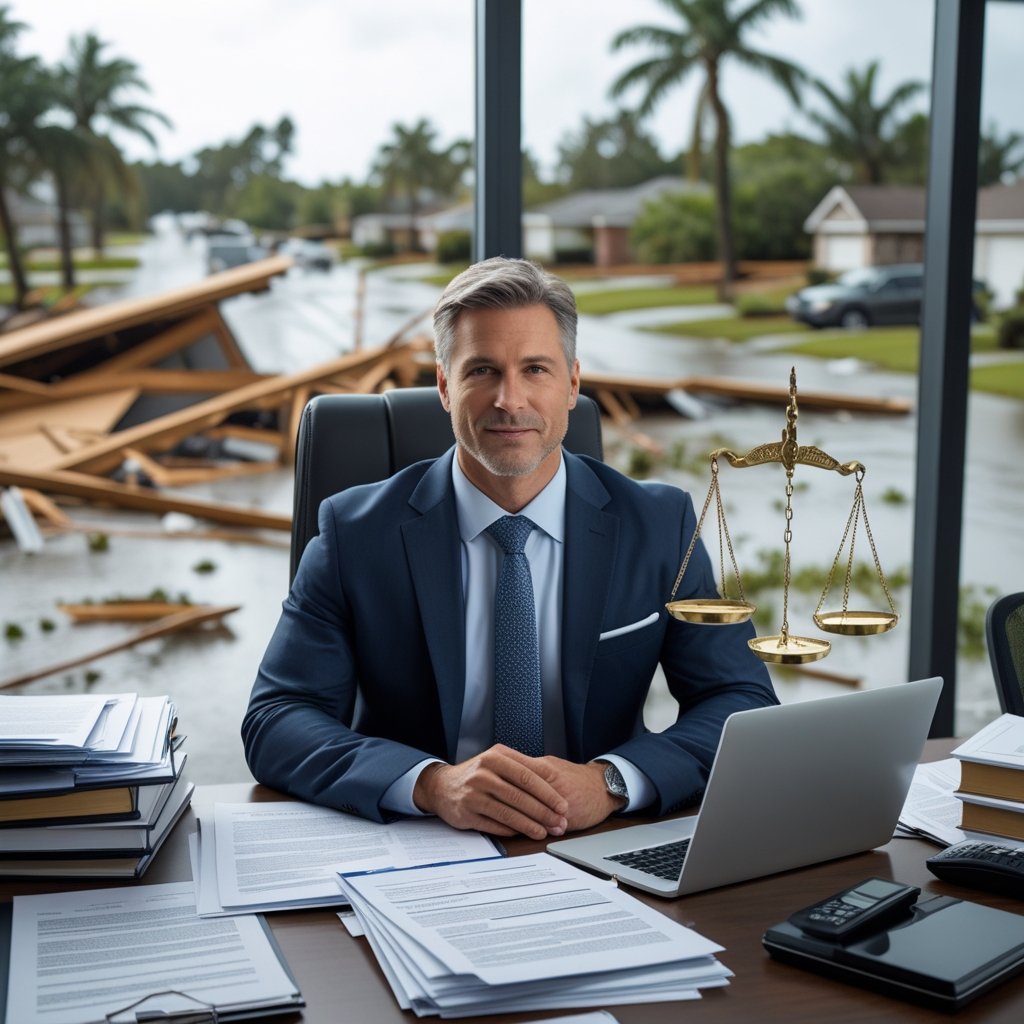
What Is Bad Faith Insurance—and How To Spot It After A Hurricane
Read Count : 120
Category : Blogs
Sub Category : Miscellaneous
"Bad faith insurance" is when insurance firms handle claims in an unfair or dishonest way, especially after large disasters like storms. Insurance companies are supposed to aid policyholders with their money, yet sometimes they delay, refuse, or underpay claims for no apparent reason. This blog post will help you learn about bad faith insurance, how to recognise it after a disaster, and what to do if you suspect it's happening to you. Understanding Bad Faith Insurance "Bad faith" is when an insurance firm breaches its contract or lies during the claims process, for as, by misinterpreting policy conditions or offering low payouts. Insurance firms should swiftly look into claims, be clear about what they mean, and pay policyholders according to the provisions of their policies. You could have to sue an insurance company if they don't do what they're meant to. The first step in getting your insurance company to answer for what it did is to know your rights. The Role of Insurance Companies Insurance companies are particularly crucial for aiding families and businesses after a catastrophe because they make sure claims are handled fairly, money is handed out swiftly, and communication is clear. People who have insurance expect checks to be done on schedule, damage estimates to be accurate, and clear explanations of their coverage. But when insurance companies are overly busy, they could take shortcuts or put off claims on purpose, which can hurt customers at the worst possible time. Signs of Bad Faith Insurance Practices If an insurer takes a long time to process a claim, denies a valid claim without a solid explanation, doesn't talk to you, gives you unclear updates, or offers you a lot less than the claim is worth without a good reason, they may be behaving in bad faith. This happens a lot after storms since there are so many claims, and companies want to pay as little as possible. Specific Challenges After a Hurricane Insurance firms often leverage the fact that a lot of claims come in after hurricanes to deny, delay, or mishandle claims. When adjusters are too busy and payouts are rushed, it can lead to bad inspections and a lot of stress for policyholders, both emotionally and financially. This makes it hard for them to challenge their treatment or fight back against the situation. How to Spot Bad Faith Insurance After a Hurricane To stay safe, be on the lookout for warning signs, including unjustified delays in setting up inspections, getting contradictory information from company representatives, refusing to send you claim paperwork or policy details, and transferring blame. Make sure you know what the policy says and keep track of all calls, emails, review dates, and estimates. If the problems don't go away, you should contact a hurricane damage attorney who specialises in storm damage to find out what your rights are and whether or not you should go to court. Steps to Take if You Suspect Bad Faith Insurance If you feel concerned during the claims process, keep a record of everything that happens, including the names of the persons you talk to, what you talk about, and any promises of follow-up. If you think what's going on is an example of legal bad faith, go to a lawyer or an insurance customer advocate. If you tell your state's insurance department about your claim, they may check into how the insurance company handled it and make them do it fairly. Legal Recourse for Bad Faith Insurance If an insurance company treats policyholders unfairly, it could be sued for bad faith. If they win, they could obtain the initial claim amount back plus damages for mental suffering, attorney expenses, and punitive damages. You need to know the rules in your area before you can file these claims. Talking to a hurricane damage lawyer who knows a lot about hurricane damage will help you do things the proper way and on time. A lot of people have been able to recover money from insurance companies by proving they acted in bad faith. This makes businesses liable. Preventative Measures for Policyholders Be careful when choosing an insurance company so you don't get ripped off. Look into how they've dealt with disasters in the past, read reviews, and ask questions. Find out what your insurance doesn't cover, how much it will cost, and how much it will pay. If you don't understand something, ask for it to be written down. Check your insurance every year to make sure that the coverage is enough to cover the worth of your home and goods. This will make sure that you are safe and less likely to get into a fight. What Should You Be Asking Yourself Now? After a storm, check how your insurance company treats you, other people, and retains records. Think about whether hiring a lawyer can help you or safeguard your claim. Be careful and don't worry about your insurance company. Being aware and taking action will help you avoid getting into money difficulties and help you recover completely.
Comments
- No Comments

